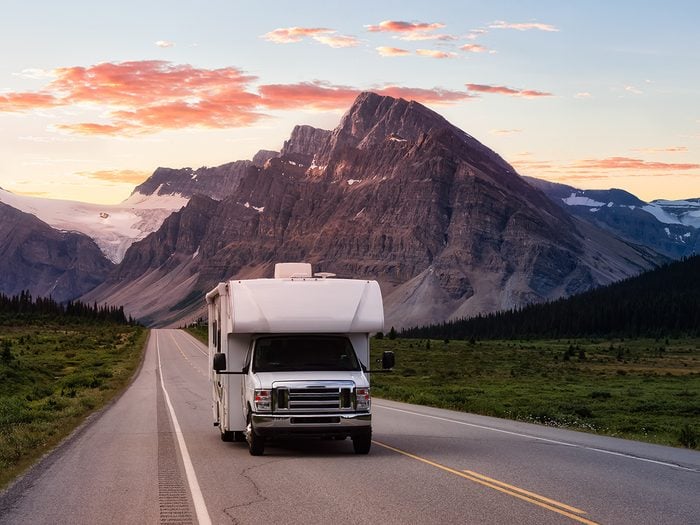
RV Trip Planner: Tips For Exploring Canada in an RV
Getting behind the wheel of an RV fulfills two essential elements of a dream vacation—the wonder of the open road, and the freedom to choose where you’ll roam. Renting a Class C RV—what we would typically think of as a motorhome—will typically cost $1,500-$2,500 per week. A Class B RV—or a “camper van”—has a lot less room and runs $1,000-$1,500 per week. And you can buy a previously-owned basic unit for as little as $10,000.
“People need recreation—and here you have all the comforts of home, the unit is sanitized, and it’s your own little hub,” notes Chris Mahony, president of Go RVing Canada, a not-for-profit organization made up of dealers, manufacturers and campgrounds across Canada, mandated with promoting the RV lifestyle. Industry stats show that rentals are seeing a massive increase in domestic demand since the pandemic: sales are up, nationally, some 30 per cent—and as much as 300 per cent in places like Southern Ontario.
Check our our RV trip planner for tips from the experts on how to make it your best holiday ever.

Pack Heavy
We’re usually encouraged to pack light, but Mahony says the opposite is true here. “With an RV, you can bring everything but the kitchen sink,” he says. That includes not just clothes and bedding but also bikes, canoes, kayaks, dishes and other camping supplies—plus creature comforts like board games. The availability of amenities at campgrounds can be hard to predict—so if you want to sit around a fire pit in the evening, plan on bringing your own chairs.
Looking to explore the great outdoors in luxury? Don’t miss our guide to glamping in Canada.
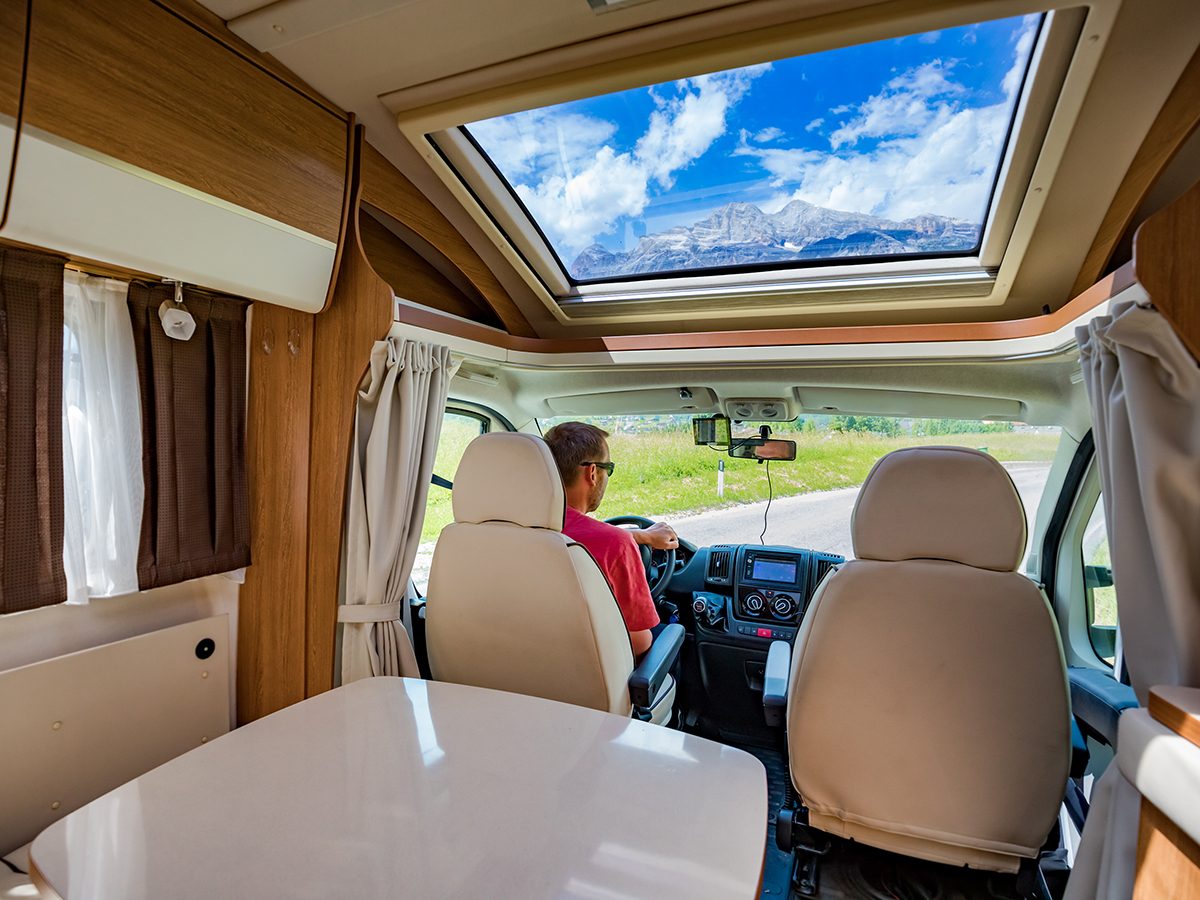
Start Slow
While most RVs are driver-friendly, Juan Serje, who works for booking site Rvezy.com, says people shouldn’t expect it to handle like their own vehicle. “Brake with time, mind your turns, always have someone help you with reverse, watch out for low overhead clearance,” he advises. And before you set out for your destination, get a good lesson from the owner or dealer, taking the RV for a spin in a safe, low-stress place, paying special attention to the heaviness of the vehicle and testing out the brakes, visibility, speed and other key elements.
Keep an eye out for Canada’s quirkiest roadside attractions.
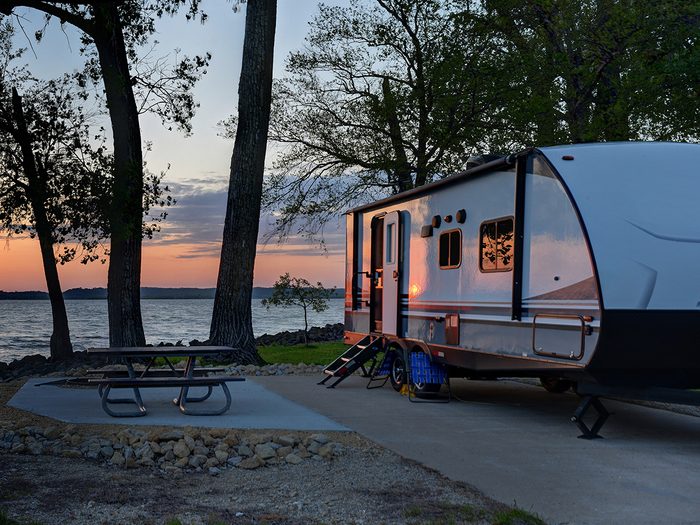
Plan More
“Don’t fly by the seat of your pants,” says Mahony. Canada has more than 4,000 campgrounds, so you should plan as far out as possible—some of the most iconic spots (like Banff National Park) book out as much as a year in advance. If you can be flexible, travel midweek, or off-season. And if you’re turned away because you haven’t pre-booked and the place is full, the campground can usually refer you to another place, nearby, with availability. You can also consult online resources provided by groups like Parks Canada and Ontario Parks, to search for unoccupied sites. (Here are 10 national parks every Canadian needs to visit.)
Be sure to also find an RV with the perfect floor plan for your family—Serje notes that the larger Class C vehicles are popular with families of four or five—as well as details like plug-ins for electronics. Most rental companies will have staff on hand who can answer any questions you may have and help you choose the right model for your needs.
Put together meal plans. Steaks, chicken and other foods you can cook outside, as well as big-batch freezer meals like chili are easy and cost-effective—cutting out restaurant meals is a key way to save money on the road.
These grilling tips from professional chefs will come in handy.
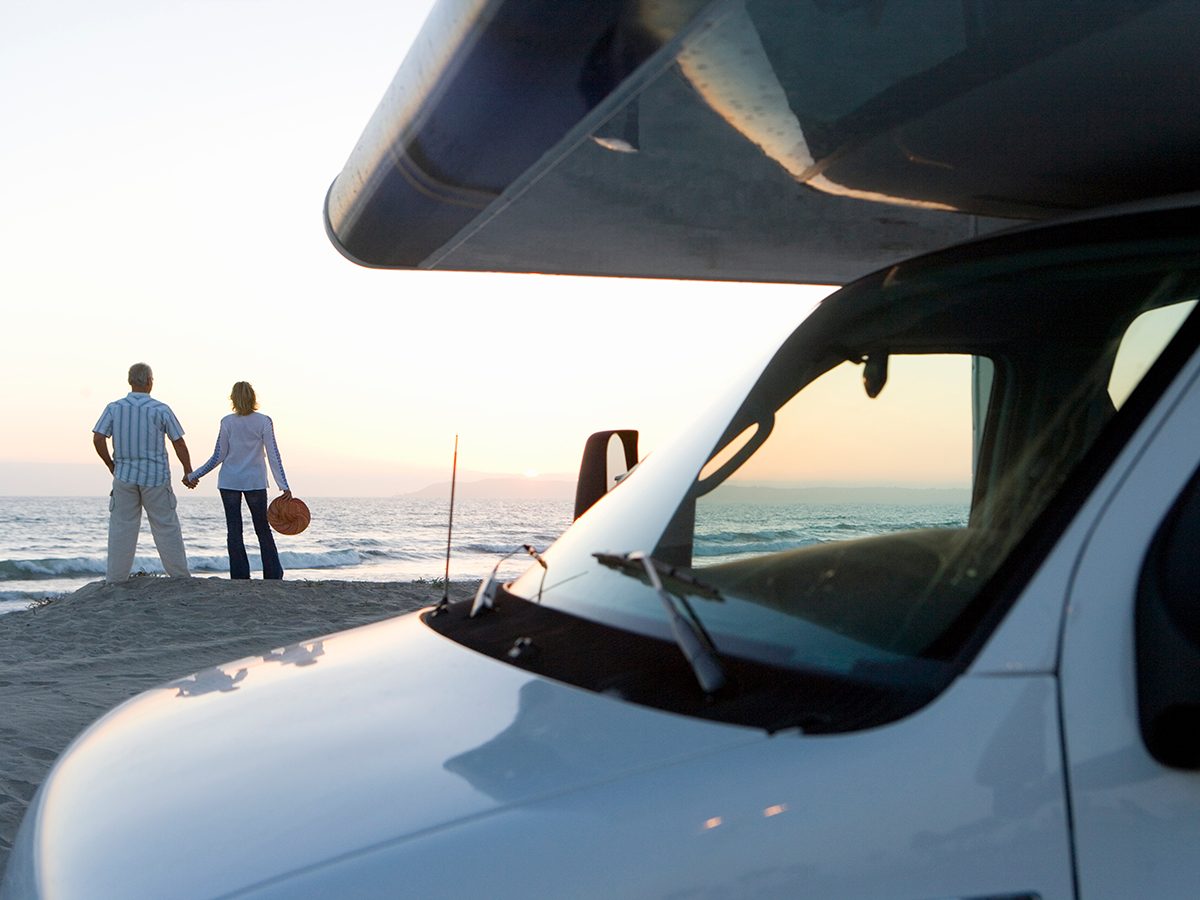
Drive Less
When planning your route, be conservative—many people make the mistake of being too ambitious with their distances. “Keep in mind that getting from A to B to C is going to take longer than you think,” says Mahony. “You’re not going 120 on the highway. RVs are built to go the speed limit, but not necessarily above it.” You might want to consider spending a couple of nights in one campground or RV resort, which often have beaches and pools and other ways to enjoy the outdoors. Limiting your mileage is also another key way to save cash, requiring fewer fill-ups along the way.
Here’s how to find the cheapest gas station near you.
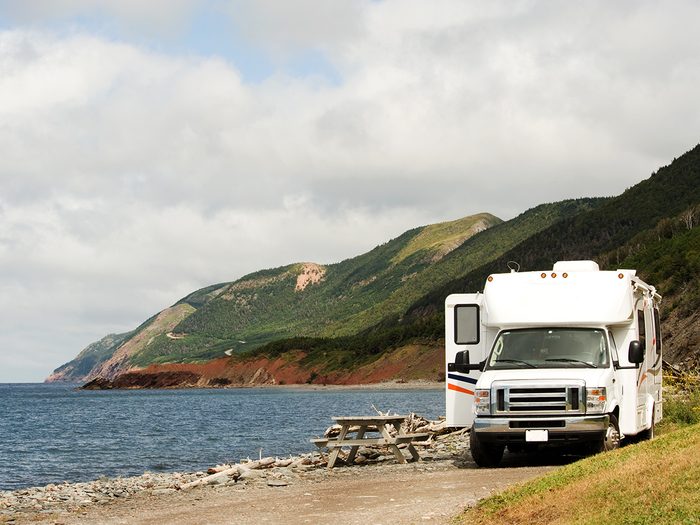
Take the Scenic Route
With road trips’ rise in popularity since the pandemic, highways and campgrounds are certain to be busy, so finding hidden gems will be important.
When your planning is done, hit the road. Serje loves Forillon National Park, a place with plunging cliffs, beautiful beaches and Canada’s tallest lighthouse on the tip of Quebec’s Gaspé Peninsula. He also recommends the prairies, noting that there are “millions” of places to visit in Alberta, Saskatchewan and Manitoba.
Mahony has a few favourite routes, including the Alaska Highway in Northern British Columbia. Begin at Mile 0 at Dawson Creek, a great jumping off point, with a number of RV-ready campgrounds, as well as hiking trails in a UNESCO GeoPark, waterfalls and offbeat art galleries. Then head out into the great, vast expanses of the north, through rugged mountains and river valleys.
And, he says, don’t overlook the regions north of Quebec City, including Charlevoix and the Saguenay, where you can trace the mighty St. Lawrence River, so wide it’s like an inland sea, on provincial highway 138, and then take the 178 to the steep-sided fjord of the Saguenay River. “Here, you’ve got wine-tasting, fishing, fromageries, whale-watching,” he says, “and so many campgrounds.”
You’ll find more inspiration for your RV route in this roundup of great Canadian road trips.